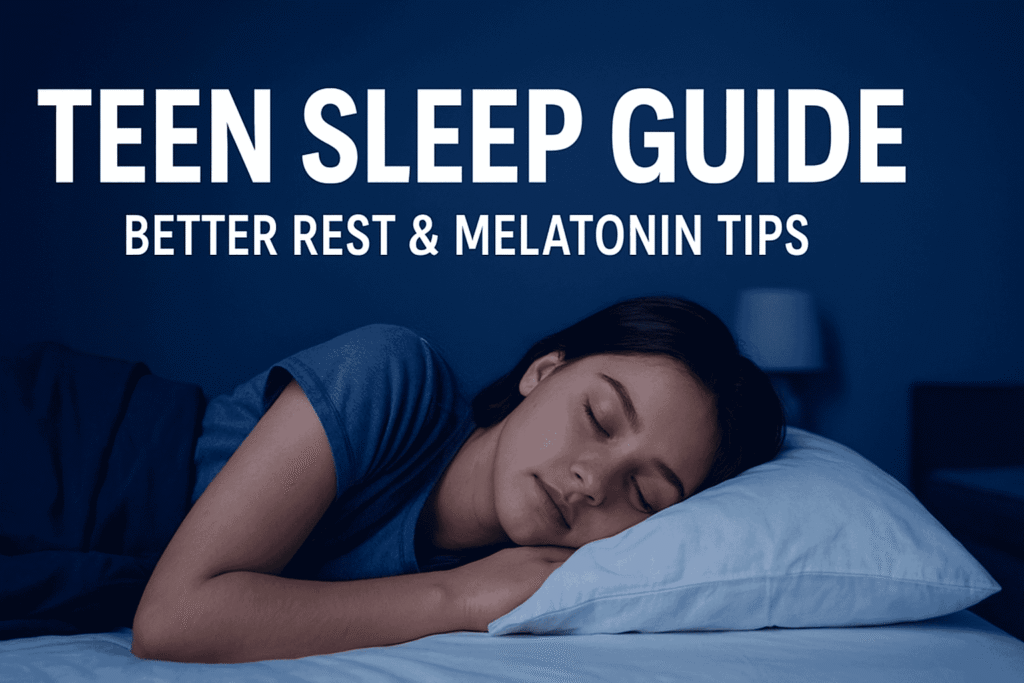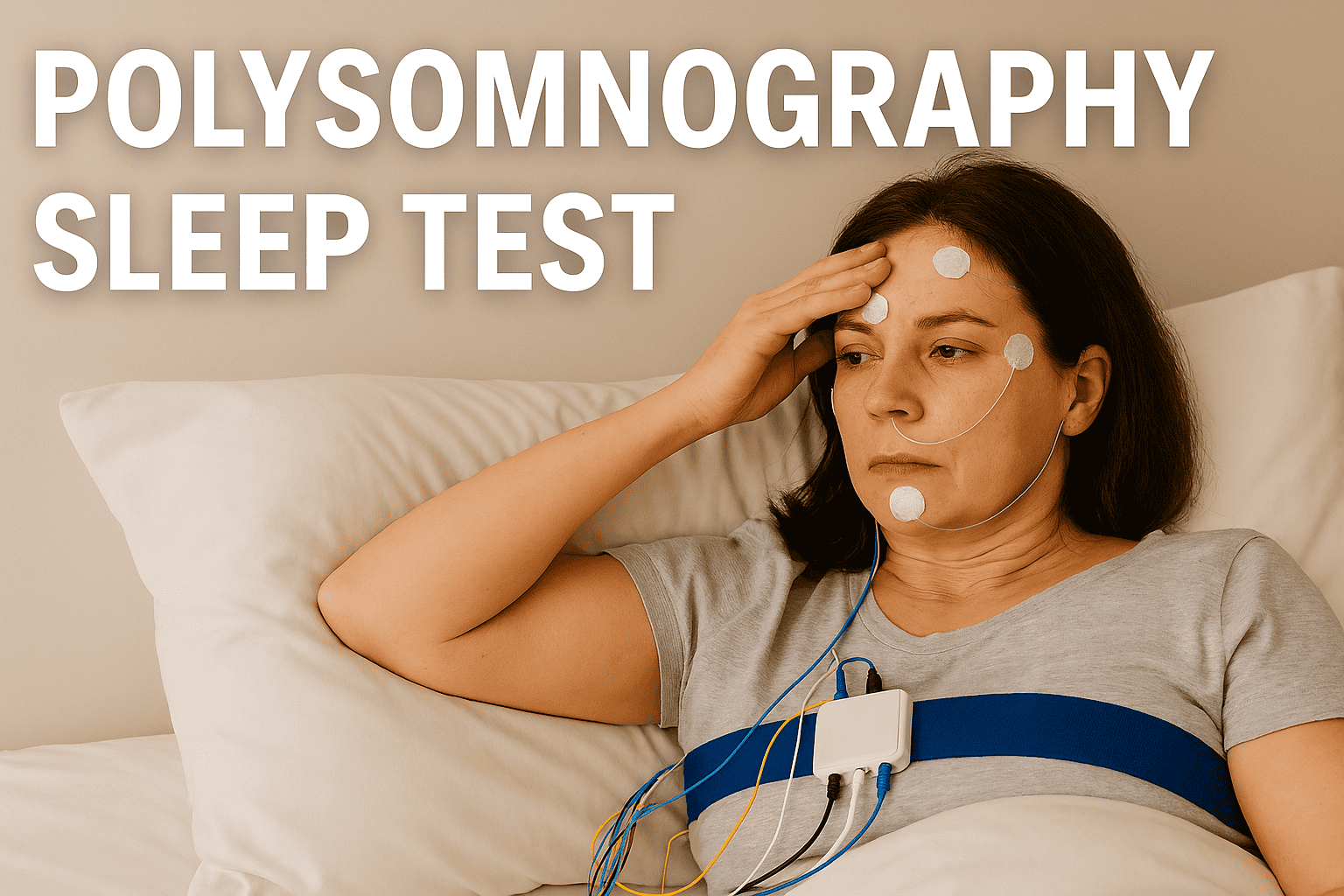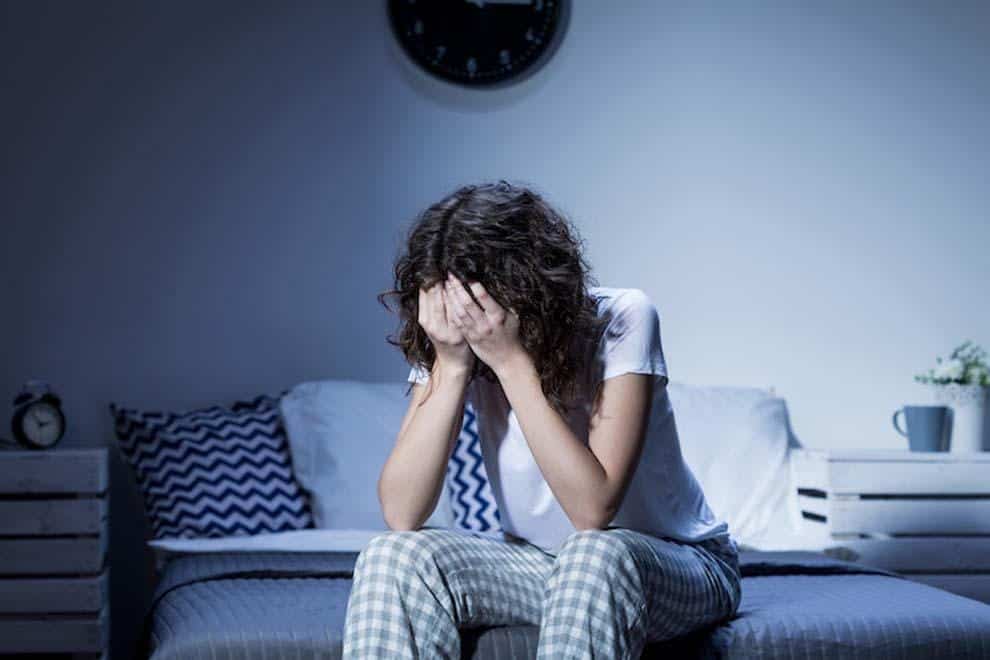Teen Sleep Guide: Tips, Hygiene, and Melatonin for Better Rest
When I was a teenager, I often struggled to fall asleep. I used to lie awake for hours, scrolling on my phone or worrying about school. Over time, I discovered that improving my sleep hygiene made a huge difference. Today, I want to share the exact steps that helped me, along with some guidance about melatonin—because I know many other teens face the same challenge.
1. Creating a Healthy Sleep Routine
Stick to a regular schedule
Going to bed and waking up at the same time every day—even on weekends—trains the body’s internal clock. Once I made this change, I noticed I felt less groggy in the mornings.
Build a sleep-friendly environment
A dark, cool, and quiet bedroom works best. Blackout curtains, a small fan, or earplugs can block out light and noise. I stopped doing homework in bed and used it only for sleep, which really helped my brain associate bed with rest.
Limit screen time before bed
I used to fall asleep while watching videos, but the blue light from screens made it harder to sleep. Now, I turn off my phone and laptop at least an hour before bedtime. Instead, I read a book, listen to soft music, or write in my journal.
Relaxing bedtime routine
Simple habits like taking a warm shower, reading a paper book (not an e-book), or doing deep breathing exercises calm the body. Meditation apps also helped me wind down after a stressful day.
2. Lifestyle Habits That Support Better Sleep
- Exercise daily, but avoid intense workouts just before bedtime. Gentle stretching is okay.
- Eat a light dinner and avoid heavy, greasy, or sugary foods close to bedtime.
- Avoid caffeine and energy drinks in the afternoon and evening. Even chocolate kept me awake at night, so I stopped eating it late.
- Get natural light during the day. Spending time outside helps regulate the circadian rhythm (the body’s sleep–wake cycle).
3. Considering Melatonin (With Medical Supervision)
At one point, I tried melatonin because my routine alone wasn’t enough. But before starting, I consulted my doctor. Here’s what I learned:
- Always ask a professional first. Melatonin is not candy—it’s a hormone. Your doctor can guide you about safety and dose.
- Start low. For teens, even 0.5 mg or 1 mg can help. Sometimes higher doses (like 3–5 mg) are suggested, but more is not always better.
- Timing matters. Take melatonin 30–90 minutes before bedtime, not right before bed.
- Watch for side effects. It may cause morning drowsiness, headaches, or stomach upset in some people.
- Not for long-term use. Melatonin can help reset sleep, but building healthy habits is more important.
4. Other Helpful Options
- Sleep diary: I kept a journal of when I slept, how long, and how I felt the next day. This helped me find patterns (like late-night snacks making me restless).
- Relaxation techniques: Progressive muscle relaxation and guided breathing exercises reduced my stress before sleep.
- Cognitive Behavioral Therapy for Insomnia (CBT-I): If sleep problems continue, CBT-I is one of the most effective, evidence-based treatments for chronic insomnia in teens.
Why Sleep Matters for Teens
Not getting enough sleep affects more than just energy. I noticed I was more irritable, had trouble focusing in class, and even got sick more often. Research shows that poor sleep in teenagers increases the risk of depression, anxiety, obesity, and accidents. That’s why building strong sleep habits now is so important.
My Key Takeaway
Improving sleep is not about a quick fix—it’s about consistency. For me, the biggest changes came from sticking to a regular routine, reducing screen time, and creating a calming environment. Melatonin helped at one point, but only under my doctor’s guidance.
If you’re struggling, remember—you’re not alone. Start small, make changes step by step, and don’t hesitate to ask a doctor for support. Better sleep will boost your mood, focus, and overall health.
Frequently Asked Questions (FAQ)
What is the best sleep schedule for teens?
Teens should aim for 8–10 hours of sleep, ideally going to bed before 11 PM and waking up naturally without alarms.
Is melatonin safe for teenagers?
Melatonin is generally safe short-term when guided by a doctor. It should not replace good sleep hygiene habits.
How can I improve my teen sleep hygiene?
Keep a consistent bedtime, avoid screens before bed, create a calm room environment, and limit caffeine intake.
Can late-night phone use affect teen sleep?
Yes. Blue light from screens delays melatonin production, making it harder to fall asleep.
When should I see a doctor about sleep issues?
If poor sleep continues for more than 2 weeks despite good habits, consult a healthcare professional.




